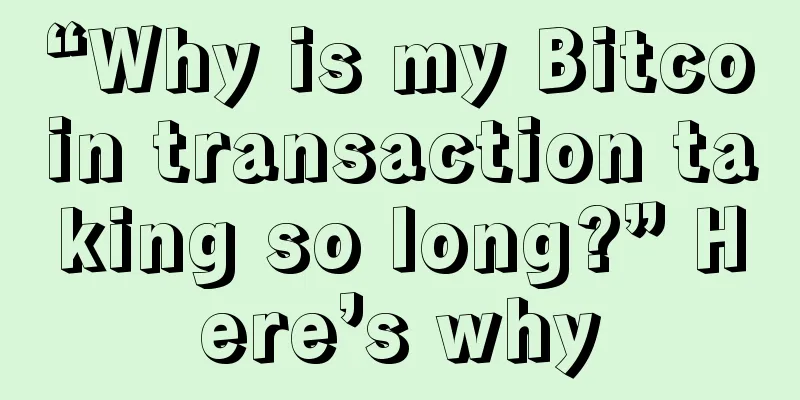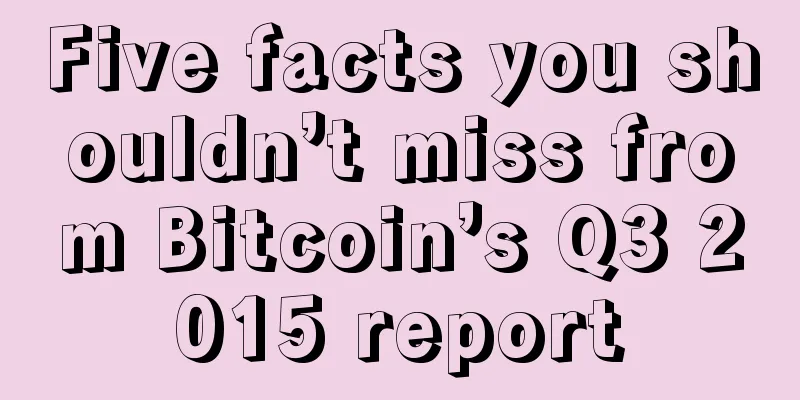“Why is my Bitcoin transaction taking so long?” Here’s why

|
Maybe you haven't noticed this problem yet, but I have. Recently, my Bitcoin wallet has been taking longer and longer to receive a Bitcoin transfer, and sometimes it even prompts me why I am still waiting. This problem didn't happen two or three months ago, although the blockchain has been experiencing transaction delays from time to time throughout the year. According to my summary, there should be two aspects of the problem. Let's explore the main problems and possible solutions. Block size dispute remains to be resolvedThe block size debate began in the summer of 2015, when the Bitcoin protocol first showed signs of transaction fatigue. Some large companies wanted to increase the block size to 8MB to relieve blockchain transaction congestion. In the end, the community implemented a buffer. However, before the end of this year, we will have more efficient solutions, such as the upcoming Segregated Witness solution, which will increase the effective block size by up to 70%. And the Lightning Network should be implemented soon. If there were a bunch of empty blocks, if the world wasn't rushing to use Bitcoin, if Bitcoin was "dead" as the mainstream media likes to say, then these current problems wouldn't exist. However, the reality is that Bitcoin is still as popular as ever, but now the total daily transactions have slowed down, probably mainly due to the current 1MB limit. It seems that transactions exceed the total space capacity, so the block size is the primary reason. But as mentioned above, a solution is coming. Transaction fees are keyMy wallet indicates that the transaction delay is due to the transaction fees paid to miners. Therefore, 21.co found another reason for the delay problem, as follows:
As shown in the above icon, the information in it can be queried in real time. You can see the yellow long box above the chart, which represents the number of transactions in the blockchain memory pool (mempool) within 72 hours. It is not difficult to find that the transaction is delayed. The two indicators on the right side of the icon represent the lagging blocks and the time required. We can find that all delayed transactions have one thing in common, that is, the mining fee is 10 satoshis or less. In this case, the transaction is delayed by 20 blocks or another 4 hours. For mining fees exceeding 10 satoshis, the delay is alleviated. And for mining fees exceeding 50 satoshis, there is almost no delay problem, and it can be said that it enjoys VIP service treatment. So, if you want to trade quickly, you can ask the exchange or wallet provider if you can manually adjust the mining fee. Last month, I waited two or three hours for a transaction. It seems that this can be avoided, but you need to take the initiative to solve it yourself. Of course, not all wallet providers can provide this flexible service. Once SegWit and Lightning Network are implemented, 2017 will see a significant improvement in Bitcoin transactions. The current impasse will become just a memory for the first batch of people who are trying out the cutting edge of 21st century financial technology. One day, you may tell your grandchildren: "In our time, Bitcoin transactions took 3 hours!" |
Recommend
Analysis of the fate of women with high cheekbones What does it mean for women with high cheekbones
A woman with high cheekbones If a woman has high ...
Nine noble bones diagram
There are nine bones, which are also called nine ...
When will people with round faces have good fortune?
People with round faces usually give people a fee...
Teach you how to analyze facial wrinkles
As the name suggests, eye wrinkles are wrinkles t...
Personality of people with upturned lips and bucktoothed mouths
The upturned mouth shape means that the upper lip...
What kind of hands are lucky for women? Analysis of lucky women's palms
If you want to know whether you are blessed or no...
Career line and life line intersect_palm analysis
Everyone knows that a person's lifeline repre...
Digital Currency 8.12 Information
1. The development of 37coins, a startup engaged ...
Is it good for a woman to have a mole on her ear? What will her fate be like?
A mole on the left ear indicates wealth in physio...
What does a mole between the eyes mean?
Moles on the face can affect your appearance and ...
What does it mean to have two career lines, one high and one low?
The career line is one of the three important mai...
What does a high nose bridge indicate? Does a person with a high nose bridge have a good marriage?
The exact location of the root of the mountain Th...
Girls born with wealth
Girls born with wealth From the moment we are bor...
Analysis of the five major facial features of the frontal bone
As one of the traditional physiognomy techniques, ...
Facial features of those who always make time to spend with their parents
Sometimes, companionship is actually the warmest ...









